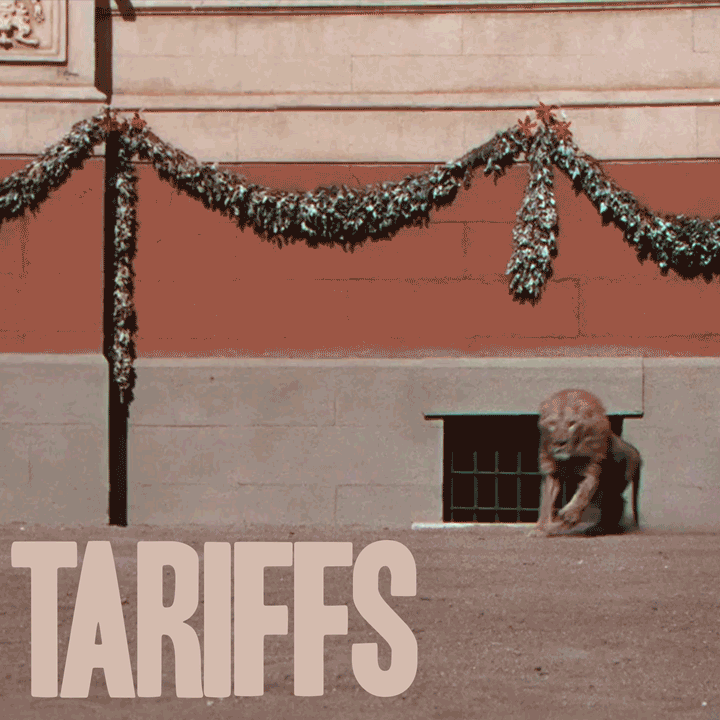GROSS DISTRACTION - Donald Trump's beef with foreign movie production is real
And he can do something about it.
Donald Trump’s crazy but he’s not an idiot. Commentators and reporters are convinced the movie tariffs thing is more arbitrary Trump nonsense: somewhere on a spectrum that includes idiotic, illogical, unenforceable, counterproductive and philistine. But it’s real and he can do something about it.
What he’s noticed is that the US movie production economy is in trouble. Not Hollywood itself, not the money-making machine (although the studios have other problems), but the production element: the huge and diverse industry that services the studios and actually makes the films - from carpenters to animators to lighting contractors and film graders.
Jobs in the American movie heartland are being lost, revenues shrinking, businesses folding. I don’t know how the President, apparently so isolated from reality, manages to do this - to locate in a political issue the worker’s perspective, the perspective of the grassroots economy - but somehow he does it.
US movie studios have been sending productions abroad literally since the beginning, of course. Hollywood firms were making epics in Europe in the silent era - MGM’s first Ben-Hur was shot in Rome in the early twenties. By the end of the second world war there was a complex economy of shooting abroad.
European governments, broke and struggling to feed desperate populations, cannily insisted that money made from exhibiting movies locally had to be spent there (remember, this is absolute peak for cinema-going: 1.46 billion tickets were sold in the UK in 1946). Researching an earlier post here - about biblical epic Quo Vadis, I learnt that, between 1949 and 1957 thirty Hollywood films were made in Italy and over a hundred in Britain. And in that period crews were out of work in Los Angeles - search the archives of the movie trades for stories about ‘runaway’ productions and furious craft unions.
For the Colosseum scenes in Quo Vadis hundreds of lions were sourced from bankrupt menageries all over Europe. But Europe is no longer a source of cheap lions - carpenters, monumental masons, film editors. Half a dozen non-US movie economies are as sophisticated and complete as the Los Angeles area. And they have highly-accommodating economic arrangements. In Britain, for instance, some of the vast fees paid to leading actors can be included in ‘core expenditure’ for tax breaks. Elsewhere they may not.
So it’s not just locations (you’ll have been hearing that a lot this week - “oh they always shoot New York in Toronto, Boston in London, Hobbiton in New Zealand etc.” That’s an unsophisticated take). It’s much more complicated and deeply-embedded: analogous, in fact, with the very complex car industry supply chains uncovered by the tariffs.
But what Trump - or some adviser - has noticed here is that, although the income from film production is still highly concentrated in the US economy, the costs of production are highly distributed. And this is by design, of course. No sensible capitalist would concentrate production in an expensive location, cutting into the net income for an activity which is already essentially a huge lottery anway.
So what Trump has identified is real and - terrifyingly if you’re an actual studio or a foreign production facility - addressable. It’s not the vague thing that the commentators want you to think it is, not an impenetrable web of fees for services, crossing and recrossing borders.
In fact, taking on Hollywood movie production outsourcing is pretty simple: make a list of countries that offer generous movie production subsidies to Hollywood studios (the UK would probably be right at the top) and hit them with a penalty. What kind of penalty? How to target a tariff? No idea. It doesn’t really matter.
This is interesting not just because it’s the US President’s first proposed tariff on services but also because it’s his first direct intervention in the culture trade. The various movie industry podcasts I listen (like The Ankler) to are all certain that this is about Trump’s war on the biggest Democratic donors - ‘TV/movies/music’ is close to the top of the list.
But Hollywood is the most self-obsessed industry in the world (and perhaps in human history). Are you watching The Studio?
According to the MPA, the US economy has a 75% export surplus in movies - contributing a net of $15.3B per year to the economy. They conclude, then, that import tariffs would be pointless and damaging - missing the point, of course.




